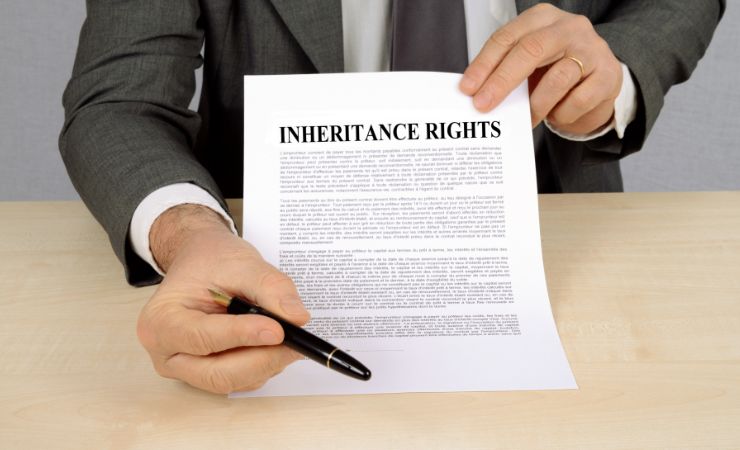Request your Consultation
Posted on October 16, 2022 in asset protection,estate planning,probate
For most people, family is a priority. Caring for your loved ones can mean keeping yourself healthy, spending quality time together, and helping in times of need. Most people do not think about their own mortality when they consider caring for their family. However, one of the best things you can do for your family is create a will and estate plan. These tools allow you to outline what should happen to your assets when you pass and ensure that your loved ones are taken care of while they grieve your death.
Unfortunately, many people die without leaving a will. When this happens, Nevada’s inheritance laws come into play. These laws dictate what will happen to your assets, children, and family when you are gone. Without a will, you have no say in what happens to your life’s work and loved ones.

When someone dies “intestate,” it means that the person has died without a will. When that occurs, the state will dictate what happens to the decedent’s assets, dependent minor children, etc. The state will outline the details of this during probate court.
Generally, all your assets will go to your next of kin if you do not have a will. First, your assets will move to your spouse. If you do not have a spouse or they are deceased, the assets will move to your children. If you do not have children or they are deceased, the assets will move to your grandchildren, siblings, nieces, nephews, cousins, and so on. If the state is unable to find a next of kin, the government will take your assets.
Even if you do have a spouse or children, dying intestate can be dangerous. For example, let’s say that your first spouse died, and you remarried. If you die without a will and your second spouse inherits your family vacation home as next of kin, your spouse has the right to sell it if they so choose. If your children or grandchildren from your first marriage wished to live in the home or keep the property, they would be powerless to do so, and precious family property could be lost.
Without a will, you cannot make sure that all members of your family are cared for.
Families come in many forms. It is common for couples to get divorced, remarry, coparent, or blend their families. Due to the diversity of family structures, it is important to note that the state of Nevada does not make a distinction between half-siblings and biological siblings. This means that your half-siblings will be next in line after your children and parents to inherit. If your next of kin is either a niece or nephew and a half-sibling, your half-sibling would inherit all your assets.
The purpose of a will is to be able to control where your assets end up when you die. Usually, this means splitting the assets between several loved ones who deserve part of your life’s work. If you die without a will, your assets will generally go to a single person. The only exception to this is if you have several members of a single category as your next of kin. For example, if you have three children, your assets will be split between all three children if you do not have a will. Similarly, if you have two siblings, your assets will be split between the two siblings if they are your next of kin.
In all other scenarios, your assets go to a single person as your next of kin. If you wish to allow several people to inherit parts of your estate, you need to create a will.
A: Nevada is a common property state, which means that all property acquired during a marriage is shared between the two spouses regardless of whose name is on the deed or bill of sale. If you die without a will, your half of all shared property goes to your spouse. However, if you kept any separate property through prenuptial agreements, your child is entitled to half of that, and your spouse would get the other half.
A: In the state of Nevada, “heir of law” is interchangeable with “next of kin.” These people are the individuals who will inherit your assets if you die without a will.
Your heirs or next of kin are to go in this order:
Unless otherwise noted via a will, the state will move down the list to distribute assets. If the state is unable to find a proper heir, the state retains the property.
A: $20,000. If a deceased person’s estate is worth $20,000 or more, the estate goes through Nevada probate court. The estate value includes the cost of a person’s house, their belongings, investments, etc. If the total value of the person’s assets does not exceed $20,000, probate court is not required.
A: No. The state of Nevada does not collect taxes on inheritances. However, many states do. To be subject to federal estate tax, an estate must be worth at least $12.06 million. If you are in Nevada and your assets are worth less than 12.06 million dollars, there should be no tax at all on any inheritance.
In probate court, the state will not collect an inheritance tax, but they may collect outstanding qualifying debts or taxes from the deceased’s estate.
It is always best to be prepared with a reliable will and a complete estate plan. Our firm is here to help make sure that your family is cared for after you are gone. Talk to an estate planning attorney Las Vegas, Nevada.
It is never too early to start estate planning. Protect your family with a will from Ken R. Ashworth & Associates today.